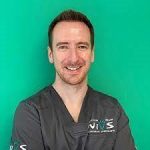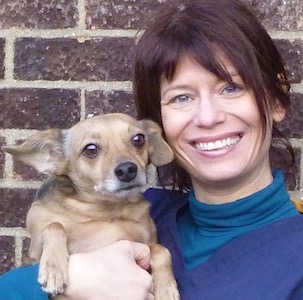Small Animal Soft Tissue Surgery is an advanced-level ‘next-step’ programme for veterinary surgeons
This 14-module programme has been designed for veterinary surgeons who want to progress their soft tissue surgical skills to the next level. Each module will be presented by specialists (ECVS or ACVS diplomates), allowing you plenty of opportunity to ask questions and receive practical instruction. A step-by-step decision-making process will help you to make the best choice in treating soft tissue conditions, and numerous case studies will be used to place theoretical concepts into practice.
Practical hands-on experience will be gained in every module using the latest equipment to accelerate your learning.
The sessions will be complemented by an online learning platform providing access to notes, case discussions via a closed forum, and further resources such as videos and reading references.
Previous experience to a certificate level in small animal soft tissue surgery is essential in order to benefit most from this course.
Hear what our delegates have to say
Don’t just take our word for it - our delegate feedback speaks for itself.
Key features of this programme
Small cohorts
Group sizes will be strictly limited to enable an excellent learning experience
Reflective learning
In addition to the taught modules, you will receive pre- and post-module questions to help you reflect and track your learning. This approach to reflective learning will assist you throughout your career as a veterinary surgeon
Perform more advanced procedures
Perform new surgical techniques and more advanced procedures under close supervision in a wet-lab environment at our two venues:
- Swindon
- Sheffield
High-quality learning
Interactive and engaging face to face lectures, demonstrations and practical applications
Expert speakers
Leading experts in a variety of surgical topics delivering the latest content and guiding you throughout the programme
Assessments and exams
All assessments and exam fees are included
Programme support
Dedicated support will ensure you have all the right tools and information to support you from the start of your programme to the moment you receive your qualification
Small cohorts
Group sizes will be strictly limited to enable an excellent learning experience
Reflective learning
In addition to the taught modules, you will receive pre- and post-module questions to help you reflect and track your learning. This approach to reflective learning will assist you throughout your career as a veterinary surgeon
Perform more advanced procedures
Perform new surgical techniques and more advanced procedures under close supervision in a wet-lab environment at our two venues:
- Swindon
- Sheffield
High-quality learning
Interactive and engaging face to face lectures, demonstrations and practical applications
Expert speakers
Leading experts in a variety of surgical topics delivering the latest content and guiding you throughout the programme
Assessments and exams
All assessments and exam fees are included
Programme support
Dedicated support will ensure you have all the right tools and information to support you from the start of your programme to the moment you receive your qualification
Programme details
Module Summary
01 - Hernias
Key Learning Objectives
- Discuss the pathophysiology of abdominal hernias
- List the surgical options for repair of hernias using autologous or synthetic materials
- Describe emergency stabilisation and surgery for traumatic hernias including when incarceration and/or strangulation has occurred
- Outline the pathophysiology of traumatic and congenital diaphragmatic hernias such as pleuroperitoneal and peritoneopericardial hernias
- Explain the pathophysiology of perineal herniation and the decision-making process for selection of an appropriate surgical procedure for their repair in individual cases
Includes a practical session where abdominal wall reconstruction by external abdominal oblique myofascial flap and cranial sartorius muscle flap, use of polypropylene mesh, omentalisation, internal obturator transposition, semitendinosus muscle flap, cystopexy, vas deferens pexy and colopexy can be practised.
02 - Liver and Biliary Tract Surgery
Key Learning Objectives
- Explain the physiology of the liver and biliary system
- Describe available surgical options for liver lobectomy and the prognosis associated with hepatic neoplasia in the dog and cat
- Outline the pathophysiology of hepatic abscesses and cysts
- Discuss the pathophysiology and clinical presentation of extrahepatic biliary obstruction and gallbladder mucocele
- Be familiar with the clinical presentation of traumatic biliary rupture and the surgical procedures required to treat it
Includes a practical session where liver lobectomy (sutured and stapled), cholecystectomy and cholecystoduodenostomy (sutured and stapled) can be practised.
03 - Urinary Tract Surgery
Key Learning Objectives
- Discuss the pathophysiology of urolithiasis and treatment options for calculi within the kidney, ureter, bladder and/or urethra
- Describe urinary tract neoplasia – types, treatment options and prognosis
- Outline the pathophysiology and management of ureteral obstruction including the decision-making process for treatment of individual cases
- Be familiar with available options for treatment of ureteral obstruction including surgery, lithotripsy and stenting
- Discuss the pathophysiology of urinary incontinence
- List the pros and cons of a variety of surgical treatments for urinary incontinence including laser ablation of ectopic ureters, hydraulic occluders, collagen injections and colposuspension
Includes a practical session where nephrotomy, nephrectomy, ureterotomy in dogs, ureteral reimplantation, colposuspension and cystopexy can be practised.
04 - Gastric and upper intestinal surgery
Key Learning Objectives
- Discuss the pathophysiology of diseases of the stomach including hypertrophic pylorogastropathy and gastric neoplasia
- Describe causes of and treatment options for gastric perforation
- Be familiar with the indications, maintenance and complications associated with placement of gastrostomy and enterostomy tubes
- Outline the pathophysiology and clinical presentation of hiatal hernia
Includes a practical session where gastrostomy and enterostomy tube placement, pyloroplasty techniques, gastrectomy, diaphragmatic myotomy, caudal median sternotomy and oesophagopexy can be practised.
05 - Lower Intestinal Surgery
Key Learning Objectives
- Explain the physiology of the colon and rectum
- Be familiar with specific diseases of the colon including megacolon, volvulus and neoplasia
- Outline techniques available for resection of the colon and rectum and the associated peri-operative, long-term complications and prognosis
- Describe the pathophysiology of rectal disease including neoplasia, perforation and anorectal strictures
- Discuss the medical and surgical options for treatment of anal sac neoplasia and prognosis for patients with this condition
Includes a practical session where typhlectomy, colonic resection and anastomosis, subtotal colectomy, anal sacculectomy, rectal pull through and the abdominal approach for dissection of metastatic sub-lumbar lymph nodes can be practised.
06 - Oral Surgery
Key Learning Objectives
- Explain the pathogenesis of congenital disorders affecting the lips in dogs including cleft palate, abnormal lip conformation, tight lip syndrome, lower lip redundancy and eversion
- Discuss management options and surgical principles for treatment of congenital disorders of the oral cavity
- List the main neoplasms affecting the nasal planum, premaxilla and oral cavity, including the tonsils and tongue
- Be familiar with surgical options for treatment of a variety of oral neoplasms and management of the possible associated post-operative complications
- Describe the options for surgical management of traumatic lesions affecting the oral cavity, lips and cheeks
Includes a practical session where mandibulectomy, maxillectomy, glossectomy, nasal planum reconstruction, palate and lip reconstruction can be practised.
07 - Endocrine System Surgery
Key Learning Objectives
- Describe the physiology of the pancreas, thyroid, parathyroid and adrenal glands
- Outline appropriate staging of endocrine neoplasia using aspiration, biopsy and imaging
- Discuss non-surgical options for the management of endocrine neoplasia
- Be able to discuss the peri-operative management of patients undergoing adrenalectomy
- Explain the options for managing surgical complications associated with endocrine surgery
Includes a practical session where thyroidectomy, parathyroidectomy, partial pancreatectomy, adrenalectomy and vena cava venotomy can be practised.
08 - Skin Reconstruction
Key Learning Objectives
- Summarise wound classification and types of management available
- Be familiar with wound healing
- Describe the different types of subdermal plexus flaps
- Discuss the most reliable axial pattern and myocutaneous flaps and their most common complications
- Explain the classification and healing process of free skin grafts
- Outline the theory behind negative pressure wound therapy (NPWT) and how it can be used with success
Includes a practical session where free skin grafts, subdermal plexus, axial pattern and myocutaneous flaps can be practised.
09 - Ear Nose and Throat Surgery
Key Learning Objectives
- Discuss the pathophysiology and clinical presentation on specific conditions of the nasopharynx
- Describe the surgical options for treatment of nasopharyngeal polyps
- Be familiar with the causes of and management of nasopharyngeal stenosis
- Outline available treatment options for neoplasia of the nasal planum and nasal cavity
- Explain the pathophysiology and clinical presentation of specific conditions affecting the ear canal and middle ear
Includes a practical session where ventral and dorsal rhinotomy, ventral approach to nasopharynx, Total ear canal ablation-lateral bulla osteotomy and ventral bulla osteotomy will be performed.
10 - Upper Airway Surgery
Key Learning Objectives
- Describe how animals in respiratory distress can best be managed to reduce morbidity/mortality and improve surgical outcomes
- Discuss the aetiology and clinical findings associated with laryngeal paralysis
- Explain the pathophysiology of Brachycephalic Obstructive Airway Syndrome
- List indications for temporary and permanent tracheostomy and be able to select an appropriate tube
- Outline the indications and considerations for tracheal resection and anastomosis
Includes a practical session where arytenoid lateralisation, staphlectomy and folding palatoplasty, wedge rhinoplasty, resected of everted laryngeal saccules, partial arytenoidectomy, temporary/permanent tracheostomy and tracheal resection/anastomosis can be practised.
11 - Thoracic Surgery I
Key Learning Objectives
- Be familiar with the challenges encountered treating thoracic trauma and stabilising patients with severe injuries
- Discuss the aetiology and clinical findings associated with conditions that might require lung lobectomy such as cysts, bullae, lung abscessation, laceration, torsion and pulmonary neoplasia
- Describe the clinical findings and surgical options for treatment of thoracic wall tumours
- Outline pathophysiology, diagnosis and treatment options associated with patent ductus arteriosus (PDA)
- Illustrate an understanding of the principles of thoracoscopically assisted thoracic surgery
Includes a practical session where intercostal and rib resection thoracotomy, lung lobectomy, location of PDA and thoracoscopy can be practised.
12 - Thoracic Surgery II
Key Learning Objectives
- Explain the aetiology and clinical findings associated with chylothorax
- Review the surgical principles and indications for intra-thoracic oesophageal surgery
- Discuss the aetiology and clinical findings associated with pectus excavatum
- Describe the pros and cons of median sternotomy and when this approach should be selected
- Outline the surgical approach for ablation of a neoplastic right atrium
Includes a practical session where median sternotomy, subtotal pericardectomy, caudal thoracotomy/location of the site for ligation of the thoracic duct, transdiaphragmatic approach for ligation of the thoracic duct/cisterna chyli ablation and pleural port placement can be practised.
13 - Reproductive Surgery
Key Learning Objectives
- Describe the clinical presentation and treatment options for uterine prolapse, rupture and dystocia
- Explain the pathophysiology of specific conditions such as vestibulovaginal stenosis, recessed vulva, vaginal oedema and prolapse, neoplasia of vagina, vestibule and vulva
- Be familiar with a variety of laparoscopic ovariectomy techniques
- Outline the pathophysiology and clinical signs associated with specific penile disorders such as hypospadia, paraphimosis, penile wounds and tumours
Includes a practical session where vulvoplasty, episiotomy, partial vaginal resection, laparoscopic ovariectomy, partial penile amputation, phallopexy and preputial advancement can be practised
14 - Acute Abdomen and Hepatic Vascular Malformations
Key Learning Objectives
- Summarise the pathophysiology and classification of peritonitis
- Explain the pathophysiology associated with penetrating peritoneal injuries, haemoabdomen, uroabdomen, chylous peritonitis, biliary peritonitis and intra-abdominal abscesses
- Discuss the pathophysiology and clinical findings associated with hepatic vascular abnormalities such as PSS and hepatic arteriovenous malformations
- Outline the medical, surgical and interventional options for treatment of hepatic vascular abnormalities
Includes a practical session where Jackson Pratt abdominal draining, partial cystectomy, biliary stent placement, practical review of hepatic vascular anatomy, vascular dissection and vessel attenuation by placement of an ameroid constrictor and cellophane banding can be practised.
Qualifications
Our Small Animal Soft Tissue Surgery Advanced Programme offers you a comprehensive range of structured learning. The course will give you new knowledge and skills to take back to practice, and you can work towards a recognised qualification. Our advanced programmes are not only for those who have gained a previous qualification, such as an ISVPS General Practitioner Certificate, a Postgraduate Certificate by Harper Adams University, or an equivalent, but are also suited for experienced professionals wanting to advance their soft tissue knowledge.
We recommend you have at least five years’ experience working in practice before taking this course – talk to one of our team to find out more.
General Practitioner Advanced Certificate (GPAdvCert)
By attending the full programme and following a successful assessment, including an online exam, you can gain the GPAdvCert awarded by the International School of Veterinary Postgraduate Studies (ISVPS).
Speakers
Pricing
£13,999.00
£14,599.00Payment & VAT Information
1. Many of our courses come with deferred payment and instalment options. Click “Book Now” to see what’s available for this course.
2. All prices will be displayed exclusive of local sales tax.
Payment Terms & Conditions
Registration Information
100% Satisfaction
We're completely confident in the quality of our training and CPD. So much so that if you're not 100% satisfied with your certificate course, we'll give you a 100% refund. Just get in touch with us within 30 days of your start date and we'll sort the rest. T's and C's apply.
Find out moreFAQs
Practical Sessions
Where are practical CPD courses or face-to-face modules held?
What will the timings be for face-to-face certificate modules and practical CPD sessions? How will my day be structured?
Where do the cadavers come from for the practical CPD and surgical modules/courses?
What should I wear to a practical CPD course/module?
I will be travelling from overseas, do I need a Visa?
Will the dogs used for practical CPD courses be sedated?
Will the dogs used for scanning have any abnormalities?
Are the dogs used for ultrasound CPD clipped?
Are cats used for any of the ultrasound courses?
Payments & Finance
What payment methods do you accept?
Do you offer any flexible payment plans?
What payment methods can I use for setting up a direct debit?
Do you issue separate invoices for each instalment?
Why was my Direct Debit payment not charged on the day that is established in my payment plan?
Why couldn’t I make payment during check-out?
Where can I find the bank details for the bank/wire transfer?
What happens if my circumstances change and I need to cancel my order?
When is payment for my veterinary CPD course due?
How much do the veterinary CPD courses and certificate programmes cost?
My course includes assessments with HAU, how do I make payment for these?
My CPD course includes assessments with ISVPS, how do I make payment for these?
Can I pay by Direct Debit?
Advanced Veterinary Certificates
How many credits does an Advanced Certificate grant towards a postgraduate diploma or professional veterinary masters?
How will I be assessed for the ISVPS GPAdvCert?
What’s not included in the Advanced Certificate programme fee? Do I need to budget for further costs?
What does the veterinary advanced postgraduate certificate programme fee include?
Who is eligible for Advanced Certificate programmes?
What is the GPAdvCert qualification? How is it different to the GPCert?
Our Clinical Excellence Centre
Discover the new Improve Veterinary Education Clinical Excellence Centre featuring two surgical wet-lab training theatres and a radiology suite.
Find out more










